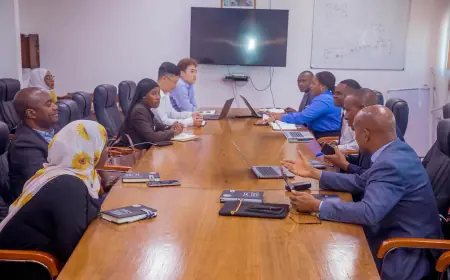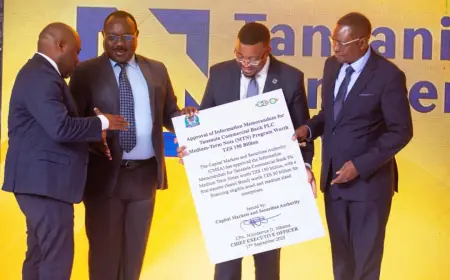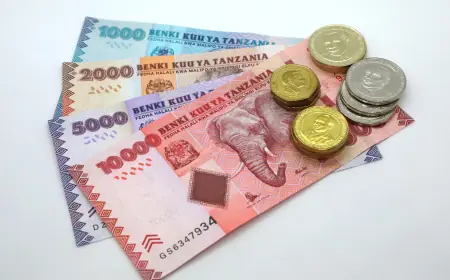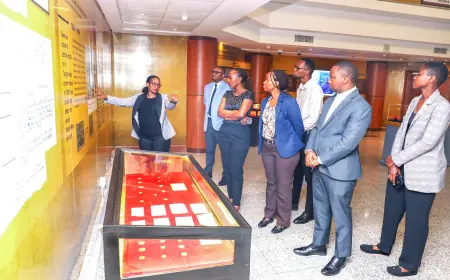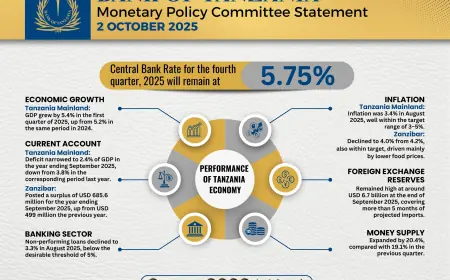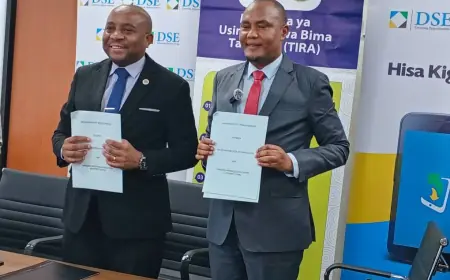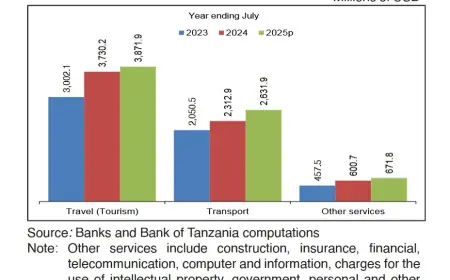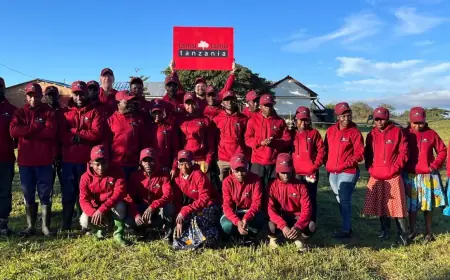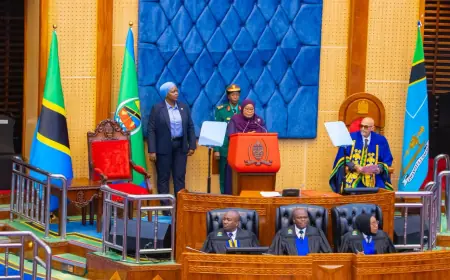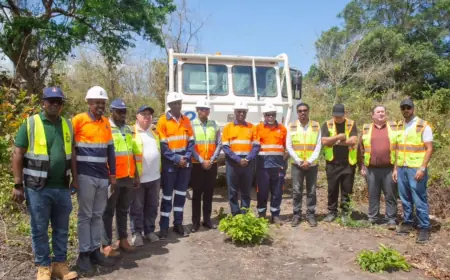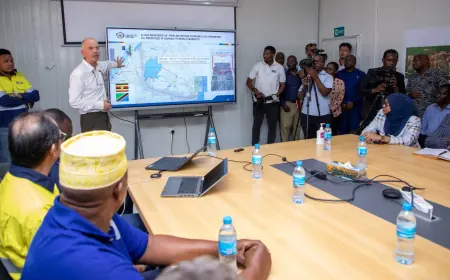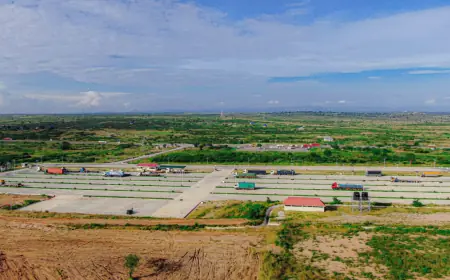Tanzanian launches impact assessment report on ease of doing business
Tanzania’s government has launched an Impact Assessment (IA) Report on the progress of regulatory reforms since the 2018 Blueprint aimed at enhancing the ease of doing business. The report highlights significant achievements, ongoing challenges, and areas requiring improvement.

To foster a competitive business environment, the government has launched a comprehensive Impact Assessment Report (IA) to evaluate the achievements made since implementing the Blueprint for Regulatory Reforms to Improve Investments and Business Environment.
Launched in 2018, the Blueprint served as a cornerstone for reforms aimed at improving the country's business and investment landscape.
Six years later, the government is taking stock of the progress made and the remaining challenges.
The Blueprint for Regulatory Reforms was devised to enhance the ease of doing business in Tanzania by eliminating regulatory bottlenecks, streamlining processes, and ensuring that Tanzania remains an attractive destination for both local and foreign investors.
The IA Report, which was unveiled by the government on September 11, 2024, provides a detailed analysis of the impact of the reforms introduced, measuring successes, ongoing challenges, and areas where further improvements are necessary.
Achievements since 2018: A Step Towards Progress
The Impact Assessment Report revealed notable achievements across various sectors.
Regulatory authorities, ministries, and the private sector have worked together to implement reforms aimed at reducing bureaucratic inefficiencies.
Prime Minister Kassim Majaliwa, in his speech during the report's launch, commended the efforts of all stakeholders involved, emphasizing that the government remains committed to creating a conducive environment for investors.
“The Impact Assessment provides for an impetus for frequent and adequate review and improvement of policies, laws, and regulations to better serve investors,” he said.
He further noted that these reforms have played a critical role in positioning Tanzania as a regional hub for investment.
“In launching this report, I call upon regulatory authorities to prioritise and ensure maximum participation of the private sector in all regulatory adjustments impacting the business environment. It’s through the joint efforts of both the public and private sectors that Tanzania can establish herself as the premier destination for doing business,” he stressed.
The report shows, for instance, that significant progress has been made in establishing Technical Working Groups (TWGs) to drive reforms across crucial sectors such as industry, trade, health, and mining. These TWGs have brought together experts from both the public and private sectors to develop sector-specific reforms.
The TWGs have provided the much-needed technical expertise and coordination to streamline processes and eliminate redundancies.
One of the major accomplishments has been in the health sector, where regulatory bodies such as the Government Chemist Laboratory Authority (GCLA) and the Tanzania Medicines and Medical Devices Authority (TMDA) have demonstrated exceptional collaboration in processing consignment clearances.
Both bodies, which fall under the Ministry of Health, have adopted a cooperative approach, leveraging each other's expertise to speed up procedures that once caused significant delays for business operators.
This cooperation reflects the successful internal reforms that have occurred within Ministries to meet the demands of a growing economy.
However, there are still gaps in inter-ministerial collaboration. While regulatory authorities under the same Ministry have displayed commendable cooperation, regulatory bodies from different Ministries have shown less coordination.
The Impact Assessment Report emphasized the need for a unified approach, where all regulatory authorities, regardless of their Ministry, operate for the common good of facilitating a seamless business environment.

Challenges Highlighted by the Impact Assessment Report
Despite the achievements, the report identified several persistent challenges that hinder the overall success of the reforms.
One critical issue is the proliferation of electronic systems across the government.
Although multiple electronic systems have been introduced to improve service delivery, many of them serve overlapping functions, leading to inefficiencies.
Regulatory authorities often rely on their systems, making it difficult to generate comprehensive reports and share data seamlessly across different government agencies.
The lack of full system integration has led to delays in processing applications and issuing licenses.
As noted in the report, government institutions at both the central and local levels have experienced difficulties generating aggregated reports.
Many of these electronic systems, while effective in theory, fail to produce the desired outcomes due to the lack of interoperability.
Regulatory authorities have expressed frustration with the slow pace of report generation, which can take several weeks, hindering progress and delaying decision-making processes.
To address this challenge, the government introduced the Government Enterprise Service Bus (GovESB), which has successfully integrated various government systems into 130 institutions.
However, this integration only covers a fraction of the government's regulatory framework, leaving room for further improvements in harmonizing the remaining systems.
During the launch the Minister of State President’s Office [Planning and Investment], Prof Kitila Mkumbo, expressed the importance of addressing these gaps in system integration.
He recommended conducting a thorough assessment of all existing government systems to identify opportunities for consolidation and integration.
This would allow for the development of a Government Resource Planning (GRP) system, akin to the widely-used Enterprise Resource Planning (ERP) systems in the private sector.
A GRP system would centralize data management, streamline processes, and provide a unified platform for the government to collect, store, manage, and interpret data efficiently.
Another challenge highlighted in the report is the deterioration of the functionality of some government-managed electronic systems over time.
Although these systems were initially launched to enhance service delivery, many of them have faced frequent downtimes, technical glitches, and delays.
Businesses have reported challenges when trying to meet deadlines due to these inefficiencies, which have led to penalties and lost opportunities.
“The government recognizes the need for a robust maintenance plan for these electronic systems to ensure their sustainability,” the report reads in part.
Additionally, the IA Report suggests that a comprehensive disaster recovery plan should be in place to address technical failures swiftly, preventing disruptions that can negatively impact businesses.
Personnel Shortages at One-Stop Centres
One of the cornerstone reforms introduced by the Blueprint was the establishment of one-stop centres to streamline processes for business operators.
These centres were designed to serve as hubs where businesses could access multiple regulatory services under one roof, thereby reducing the time and costs associated with visiting different government offices.
However, the Impact Assessment Report revealed a significant shortage of personnel at these one-stop centres, which has affected their overall efficiency.
Feedback from the business community indicates that while some officers from regulatory authorities are present at these centres, many are not adequately equipped to provide the essential services required.
Some officers offer guidance but are unable to carry out the actual processes, leading to frustration among business operators who visit these centres expecting quick service.
This shortage of personnel is exacerbated by the fact that more one-stop centres are expected to be established in the future.
The IA Report said the government needs to conduct an assessment of existing centres to evaluate the level of service delivery and determine the resources required to staff and operate these centres effectively.
Stakeholders interviewed for the IA Report suggested that the introduction of Electronic Single Window Systems (eSWs) be used to address these staffing challenges.
By implementing eSWs, the government can reduce the number of personnel required at one-stop centres and increase the efficiency of service delivery.
Lack of Feedback Mechanisms for Businesses
The absence of a formal complaints portal for businesses was another significant issue raised in the IA Report.
While the government has made strides in improving the business environment, businesses lack a direct channel to voice their grievances or offer feedback on regulatory processes.
During the impact assessment, business operators expressed frustration over not having a reliable mechanism to report challenges or propose improvements.
Establishing a complaints portal could serve as a valuable resource for both the government and the business community.
It would allow businesses to submit complaints or feedback in real time, providing the government with data on the challenges faced by business operators across different sectors.
This would not only help identify pain points but also serve as a live repository of information that could inform future reforms and policy adjustments.
Permanent Secretary, President's Office, Planning and Investment, Dr Tausi Mbaga Kida, emphasized the importance of feedback from the private sector, noting that it is crucial for understanding the realities faced by businesses on the ground.
She recommended that the government expedite the development of a complaints portal to ensure that businesses have a formalized and structured platform to communicate with the Office of the President.
The Importance of Self-Regulation
Another recommendation from the report is the need for business associations to adopt self-regulation practices.
Self-regulation has been identified as an effective way to foster accountability within the private sector, ensuring that businesses adhere to ethical practices.
While regulatory reforms focus on improving processes and reducing barriers, the role of businesses themselves in maintaining high standards of conduct cannot be overlooked.
Business associations such as the Tanzania Private Sector Foundation (TPSF), Tanzania Chamber of Commerce, Industry and Agriculture (TCCIA), and the Confederation of Tanzania Industries (CTI) have been urged to take the lead in establishing self-regulation mechanisms.
This would not only enhance the credibility of businesses but also contribute to a more transparent and ethical business environment.
Mapping Procedures for Businesses
To improve transparency and ensure that businesses are well-informed, the government has mandated all regulatory authorities to document and publish procedures for registration, licensing, payments, and other compliance requirements.
However, the report found that many of these procedures are either unclear or not easily accessible on regulatory authority websites.
To address this issue, the report recommends the establishment of an online Procedure Mapping Portal that would provide clear, step-by-step guidelines for businesses to navigate various compliance processes.
This portal would serve as a central repository for all regulatory procedures, offering an end-to-end perspective that simplifies compliance for businesses.
The Future of Regulatory Reforms in Tanzania
As Tanzania continues to position itself as a competitive destination for investment, the findings of the IA Report serve as a roadmap for future reforms.
The government’s commitment to improving the business environment is evident in the progress made since the Blueprint was launched.
However, there is still work to be done to ensure that the reforms introduced are sustainable, efficient, and responsive to the needs of businesses.
The government’s ongoing collaboration with the private sector, coupled with a focus on system integration, personnel training, and feedback mechanisms, will be key to achieving the goals outlined in the Blueprint.
As Tanzania moves forward, the lessons learned from the past six years of reform will undoubtedly shape the next phase of regulatory improvements, ensuring that the country remains a vibrant and attractive hub for investment in the region.
What's Your Reaction?
 Like
0
Like
0
 Dislike
0
Dislike
0
 Love
0
Love
0
 Funny
0
Funny
0
 Angry
0
Angry
0
 Sad
0
Sad
0
 Wow
0
Wow
0



